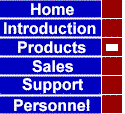

 |
Calendar/Docket ModuleThe SQL*Partner Calendar/Docket Module is a full-featured scheduling system that manages Firm calendars, office calendars, case related activities, individual appointments, and to-do's. Calendar information can be stored and managed centrally or distributed to the individual user. Standard reports include graphic calendars via on-screen review or in printed formats. Some of the features of this module include:
Time & Billing IntegrationThe Calendar/Docket Module is available as a standalone application or may be integrated with the Time & Billing Module. Activities can be assigned to client/matters. Scheduled activities can be "relieved" through the time entry program, and personal calendars may be displayed from the user's menu. User-Defined ActivitiesCalendar entries are based on a set of user-defined "activities" which can, be attached to such variable items as specific courts and documents. These pre-defined activities are inserted into a case or "Matter Plan". Each calendar entry can have its own note pad containing standard notes, reminders and up to 50 lines of free-form text. An activity can be anything a person needs to be reminded to do. Such diverse activities as "Trial", "Interview with Witness", "Send Notification", "Corporate Meeting", "Vacation", etc. may be included in a Matter Plan. Rules-Based SchedulingActivities can be maintained:
Using one activity as the primary activity, such as "Trial", scheduling on a particular date can automatically calculate all of its associated activities based on the "Trial" date. Therefore, a "Trial" can be set on a specific day, a "One Day Notification" set one day prior, a "Retrieve File" set five days before, and a "Client Memo" set one day after. These activities can be mixed, matched and re-used in any combination with any number of days offset before or after a base date. The Calendar/Docket Module maintains multiple calendars to be applied to an activity including:
Office and Personal CalendarsAll appointments and "to do's" are available on the Calendar screen where any individual's calendar for a given day can be shown. Appointments related to matters are drawn from the Matter Plans and additional "personal" appointments can also be maintained. The 50-line note pad can be selected for any item displayed. A brief Matter Plan is also available for case-related items to be displayed on request. Rules may be established for each activity in the template to adjust dates either prior to or after holidays and weekends. When the date of the base activity is changed, the dates for all other linked activities in the template are changed accordingly. Appointments and To-Do'sAn activity scheduled at a specific time becomes an "appointment" rather than just a "to do". Timed appointments automatically check for and report potential conflicts, but do not prevent them. Time can also be calculated based on previous appointment times during the same day (2 hours later, 15 minutes prior, etc.). Both "to do's" and "appointments" check for and report on potential conflicts with weekends and holidays against Firm or court calendars. User-Defined Calendar FormatsA variety of selections are available in the Calendar Reports so that they can be tailored to individual or office needs. Such criteria include:
Also, a complete audit log of Calendar entries is maintained which allows an abbreviated display or detailed printout of user input and activity. Check In/Check OutIn addition to scheduling items through the matter plan or individual calendar maintenance, users can easily reflect their availability through the Check In/Check Out feature. This feature allows a user to display their personal calendar, select the appropriate time of day, and press a single key to indicate they are not available (in conference, out of the office, etc.) This check out process notifies user-defined list of individuals or workstations (reception or telephone operators) automatically of the person's status checked out, so they may immediately respond with the appropriate action during inbound calls. A check in process, similar to the check out, is available to indicate the person's return. In addition, a log out feature is available for extended absence, in which the user may enter a message as to the nature of their business and how long they intend to be away from the office or otherwise unavailable. User-Defined TermsThe Calendar/Docket Module supports the creation of user-defined teams, or logical groupings of timekeepers, to help facilitate the scheduling process. Activities may be assigned to individual timekeepers or to teams, in which case the activities will appear on the calendars of all members of the team. More Info...Other modules in the Practice Management System include: When used in conjunction with the The Financial Management Series, The Practice Management Series forms a complete information processing system for law firms of all sizes and types of practice. |
[Home] [Introduction] [Products] [Sales] [Support] Developed and Maintained by the WSI Marketing Group. Comments and Questions may be directed to: Marketing Group © 1993- Wehrheim Systems, Inc. All Rights Reserved. |